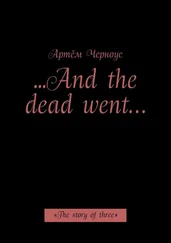“NO,” I SAID, TO THE WORLD AT LARGE. “No. No. No.” I thought that maybe if I chanted it enough times, all the aggravating things in my life would stumble away into oblivion. Then I’d be free to have the existence I wanted, something much more glamorous and gratifying.
The “no” was nothing new. It had, after all, been the first word I’d ever spoken. There were photos of me, posing prissily as an infant, my arms crossed over my chest, and a look of pointed fury on my face. By the time I was two, the initial no had become a string of nyets, neins, and the occasional sarcastic ha! I’d swiftly learned to read, and books had been the end of any social aptitude I might have possessed. I’d retreated from whatever unsatisfactory experience was coming my way, be it hamburgers (I was, from birth, vegetarian) or PE class (steadfast refusal to play for anyone but myself caused issues with team sports), a volume of something clenched firmly in my hand. My mother maintains that I wasn’t rude, but I think about the kind of child I must have been, interspersing meows (my cats were my only real friends, and I’d developed an unfortunate nervous tic that caused me to meow in stressful situations) with the vocabulary of a seventeenth-century noblewoman, and I do not know how I survived my childhood. Time was spent in both Special Education and Gifted and Talented programs.
From a second grade report card: “Maria has a good sense of humor, but doesn’t tend toward social interaction and instead just laughs to herself. She could also use some supervision when it comes to her school clothes.”
I’d learned to use a sewing machine at the age of seven. Sometimes I came to school dressed in quilt fragments and safety-pinned togas.
In high school, I got in massive trouble during an assembly, because I’d laughed at soon-to-be-elected Congresswoman Helen Chenoweth, who’d pleaded ignorance of her own policies. I was not the only person in opposition (Chenoweth turned out to be embarrassing even to the Republicans—in 1996, when her GOP primary opponent stripped nearly naked during a televised interview, and spent the month prior to the election in a psych ward, he still got 32 percent of the vote), but I was the only one dumb enough to think that everyone else would laugh, too. Moreover, I was, alas, sitting in the front row, wearing a ruffled orange frock and purple combat boots. When Chenoweth started crying, her cohort, Senator Larry Craig, shook his finger in my face and told me that I was a “very, very bad girl.” It was a familiar theme. The only thing that kept me from being expelled was my friend Ira petitioning the principal with the suggestion that I was “a little bit retarded.” My mode of existence obviously didn’t work for everyone, and half the time it didn’t work for me, either, but I was resigned. It was how I was made. I was a protestor. I was such a protestor that I regularly protested things that might have been good for me.
When I’d moved to New York, after high school, I’d begun to suddenly, miraculously, sort of fit in. Unfortunately, I’d said no to so many things that I wasn’t sure how to say yes anymore. This was problematic, considering that what I’d thought I’d wanted had turned out to be a shifting target, and that every day, the city gave me new things to say yes to, things I’d resoundingly denied in the past. My nos had begun to tremble, particularly in the dating category. I’d tentatively started saying yes, but it had turned out that my judgment of who to bestow my yeses upon was deeply flawed. After a year in New York City, I’d dated plenty of people, but none that had even come close to whatever I thought my ideal was. That was the other problem. I was looking for something different, but I didn’t know what it was.
Certainly nothing that was outside my window. Across the way, I could see my neighbors wandering around half-naked. It seemed that everyone in my neighborhood was always in a state of unappealing undress. Not only that, they were always screaming at each other, even at 7:00 in the morning.
“Please be quiet,” I whispered, not just to the neighbors, but to the whole damned city. “Please, just let me sleep.” And for a moment, peace. I closed my eyes. I tucked myself back into bed.
Rrrrrrrrrringggggggggggggggggggggggggggggggg!
I’d never been a person who could just let a telephone ring. I always thought that the person on the other end might be someone I’d been dying to talk to for my entire life. Say, William Shakespeare calling from beyond the grave. Never mind that this had never happened. Lately, it had been the Sears collection department, searching for another Maria Headley, who owed them $15,000. She’d apparently binged on appliances, and was even now hidden in some dank cave full of stand mixers. Even though I wasn’t the right Maria, I always ended up talking to Sears for at least half an hour. I’d grown up on one of the last party lines in the known universe, and phone privileges still seemed precious to me.
“Good morning!” I trilled. It wouldn’t do to have Will Shakespeare thinking I was cranky. Particularly on Valentine’s Day. What if he thought I preferred Kit Marlowe? I suspected that the last good man on the planet had died 413 years before I was born, but some part of me was still waiting for Mr. Shakespeare to whisper some sweet iambic pentameter into my ear.
Alas, no. Instead, I heard the husky voice of the Director, an acquaintance from a writing workshop I’d attended the year before. The Director was in his mid-forties and divorced. He was an intelligent person, with extensive knowledge of two thousand years of theater history. There was just one problem. Sweater vests. I couldn’t date a man who wore sweater vests, any more than I could date a man who was a mime. Everybody had phobias. Sweater vests threw me back, not to my charming grandpa, as they would some people, but to my skeezy high school geometry teacher, who had recently gone on trial for attempting to calculate the surface area of his female students’ breasts. (My phobia of mimes was simpler: I was a playwright, and words were my business. I took miming as a personal insult, but more on that later…)
The Director, with his sweater vests, with his husky voice, was not my first choice for someone I wanted to speak to at 7:30 in the morning. I liked him, but I didn’t like him like that. We were supposed to see a play that night, and he was suggesting we meet up earlier. I said sure, but that I was still in my pajamas. He said he was really looking forward to seeing me, I said great and tried to say good-bye, and then, something went very wrong.
“I’m listening to NPR,” he suddenly stammered. “Do you want to come over and make out?”
Well. I was finally going nuts. It was about time. Other people in my family were nuts. Why had I thought I’d been skipped?
“I didn’t quite hear you,” I said, just to make sure I was really losing it.
“I’m listening to NPR,” the Director repeated. “Do you want to come over and make out?”
It wasn’t a delusion. He’d offered me a radio rendezvous. Making out to Morning Edition. I had one question.
WHOSE LIFE WAS THIS?
“Is it for me?” yelled my roommate Victoria, but I didn’t respond. I was itemizing the things I’d said to the Director that might have caused him to think that National Public Radio turned me on. I could think of nothing. I liked public radio, of course. Who didn’t? But my attraction was strictly platonic.
A TINY LITTLE EXISTENTIAL crisis began to nibble at the back of my left eyeball. Maybe it had been there for a while, and I just hadn’t noticed it. My life left little time for reflection, given that my typical day involved rising at 5:30 a.m. to write a paper I’d inevitably forgotten, flying to the subway in order to get to NYU in time to attend an 8:00 a.m. lecture, where I’d usually fall asleep, flinging myself onto the train again for five or six hours of midtown temping, then a mad dash downtown for a few more hours of classes. I’d get home, write half a play, then go out again for a rehearsal until midnight, at which point I’d return home, write some more, and fall into bed for my usual three hours of sleep. I was fried. Most of my energy was spent on surviving, and I filled in the gaps in my nights with a series of unsuccessful love affairs.
Читать дальше











